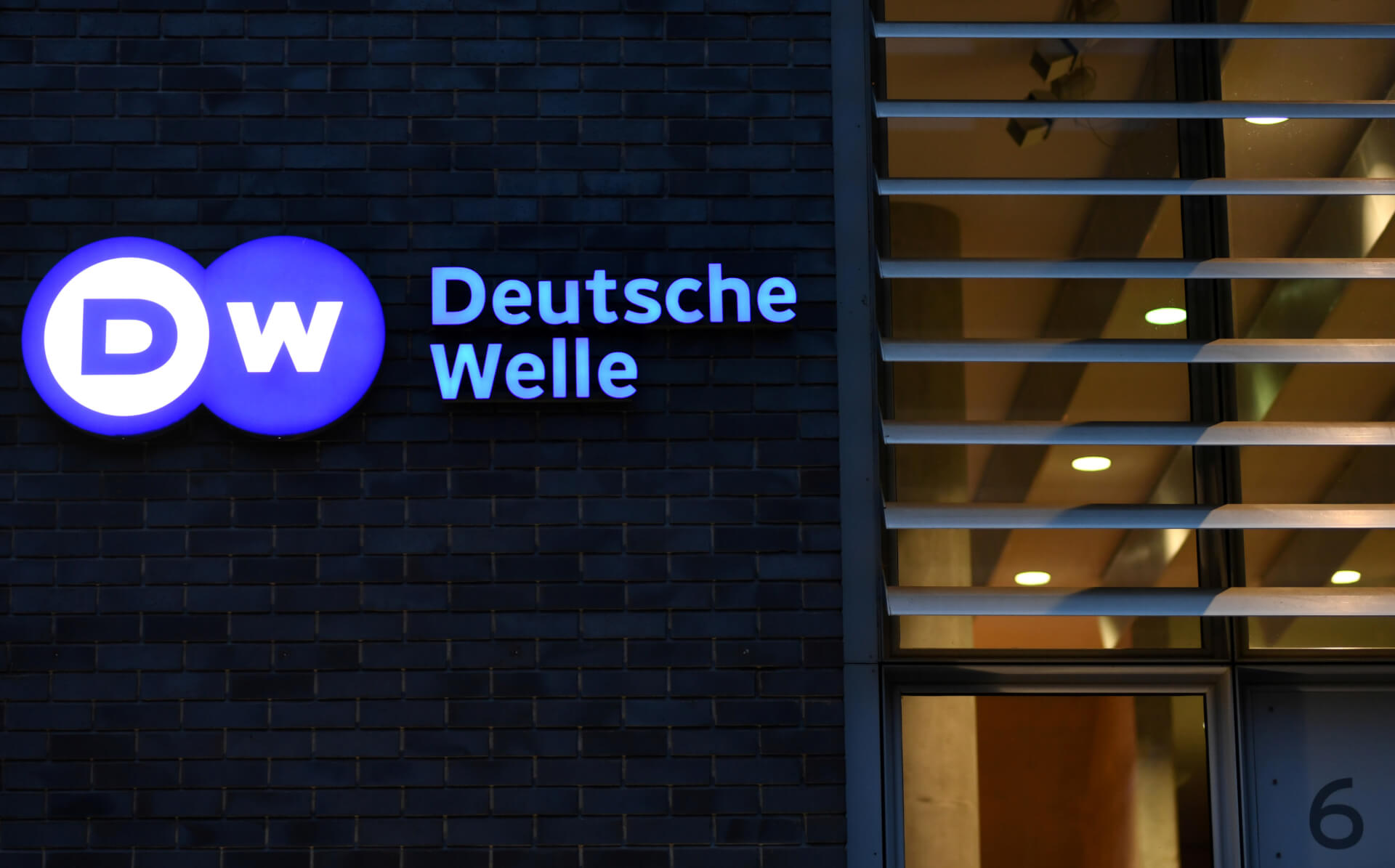German politicians and organisations defended Deutsche Welle (DW) after Russian authorities moved to shut down DW’s Moscow bureau, withdrew accreditations from journalists and considered labelling the organisation as a foreign media outlet performing the functions of a foreign agent.
Russia closes down @dw_russian's operations in Russia, revokes all accreditations - as revenge for @RT_com not getting a German license over spreading Covid-19 fake news.https://t.co/fZ3GDRVgdJ
— Christo Grozev (@christogrozev) February 3, 2022
Public broadcasters ARD, ZDF and Deutschlandradio condemned DW’s closure, saying it politicises press freedom. The joint statement released by these organisations stated, “Free, independent reporting is being drastically restricted in order to exert political pressure. The fact that this simultaneously turns press freedom into a bargaining chip fills us with great concern.”
Journalists also expressed concern over Russia’s decision and extended support for their fellow DW journalists. The German Journalists Association (DJV) urged Russian President Vladimir Putin to reverse the decision. DJV chairman Frank Überall called Moscow’s decision a “cheap retaliation” for Germany’s decision to ban Russian state-owned TV channel RT DE from broadcasting in the country without a license.
"You can't compare RT German with Deutsche Welle."
— DW Politics (@dw_politics) February 3, 2022
DW Director General @dw_Limbourg reacts to Russia's decision to close Deutsche Welle's bureau in Moscow and revoke its journalists' accreditations in Russia.
More here: https://t.co/JG881Td4l7pic.twitter.com/yPttR7oGFR
German trade union ver.di board member Christoph Schmitz said the decision showed Russia’s rejection of European values and urged the German Chancellor Olaf Scholz to demand a reversal of the ban during his upcoming trip to Moscow.
German Federal Minister for Culture and Media Claudia Roth also condemned Russia’s decision, saying, “DW is also an independent organisation. This means that, unlike RT DE, the German state does not exert any influence on programming. I, therefore, urge the Russian side not to exploit RT’s licensing problems for political purposes.”
In contrast, Russian officials and pro-Krelim media organisations welcomed the move. The Russian foreign ministry said it would also terminate the DW satellite and other broadcasting units. Additionally, Moscow said it would also ban officials involved in restricting the broadcasting of RT in Germany from entering the Russian Federation.
The retaliatory measures include:
— MFA Russia 🇷🇺 (@mfa_russia) February 3, 2022
🗞 closing the office of @DeutscheWelle in the Russian Federation;
🗞 revoking the accreditation of all employees of the #DW Russian bureau;
🗞 terminating @DW’s satellite & other broadcasting in Russia, etc.
👉 https://t.co/Bo8NqhFqGi https://t.co/ozjcRDqEKI pic.twitter.com/KoiuG0A6dd
Moscow’s decision comes after the German Media Regulator banned the German-language channel of Russian state broadcaster RT. Critics have previously accused the state broadcaster of furthering propaganda and misinformation on behalf of the Kremlin. On Wednesday, the German MABB media watchdog and Commission for Licensing and Supervision of Media said the Russian state broadcaster could not broadcast in Germany using a Siberian license.
In response, Kremlin spokesperson Dmitry Peskov said on Thursday, “The situation is perfectly clear: a Russian media outlet, I would even say an international media outlet, has been banned from broadcasting in Germany. This is nothing less than an attack on freedom of speech.” Peskov’s remarks come after the Russian foreign ministry announced retaliatory measures later on Thursday without specifying the details.

